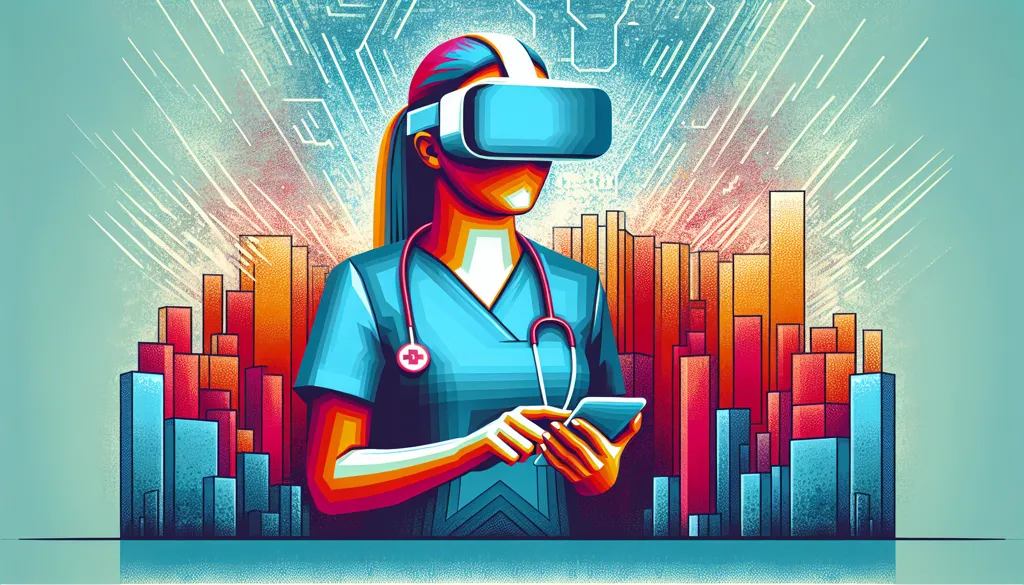Examining the Role of Virtual Reality in Enhancing NICU Nurse Training
The importance of newborn skin assessment in Neonatal Intensive Care Units (NICUs) cannot be overstated. Newborn skin, especially that of preterm infants, is significantly more fragile than adult skin and requires meticulous care to prevent injuries. The Virtual Reality Simulator (VRS) training program has emerged as a promising tool to improve the attitudes and skills of NICU nurses regarding newborn skin assessment. This article explores the effectiveness of VRS training, drawing insights from recent studies and real-world applications.
The Unique Challenges of Newborn Skin
Newborn skin, particularly in preterm infants, is structurally and functionally distinct from adult skin. The epidermis in preterm infants is notably fragile due to incomplete maturation of the skin barrier. This necessitates careful handling, especially when using and removing adhesives, to maintain skin integrity during the critical newborn period. Common skin issues in NICUs include diaper dermatitis, erythema, and desquamation, all of which require regular assessment to mitigate potential morbidity and mortality.
The Critical Role of NICU Nurses
Nurses in the NICU are pivotal in assessing and maintaining newborn skin health. Despite the availability of evidence-based assessment scales, the prevalence of skin injuries remains concerning. Attitudes of nurses towards skin assessment can greatly influence their willingness to adhere to guidelines, highlighting the need for effective training programs to foster positive attitudes and behaviors.
Virtual Reality Simulation: An Innovative Training Approach
VRS technology has been introduced as a method to enhance NICU nurses' attitudes towards newborn skin assessment. This approach leverages immersive and interactive learning environments to capture attention and improve message retention. A recent study revealed that VRS training significantly improved nurses' attitudes and competencies in newborn skin assessment compared to traditional methods. The training included both theoretical and practical components, with the latter involving one-on-one sessions using realistic simulations.
Comparative Analysis: VRS vs Traditional Training Methods
Studies comparing VRS with traditional training methods, such as lectures and analogy-based education, have shown VRS to be more effective in enhancing and retaining knowledge. For example, analogy-based methods have been used successfully in pressure injury staging training, demonstrating improved retention and understanding. Similarly, VRS has been found to significantly improve nurses' knowledge and skills, suggesting its potential as a superior training tool.
The Impact of VRS on Attitudes and Practice
The study involving NICU nurses showed that those who underwent VRS training exhibited a marked improvement in their attitudes towards skin assessment. This was evidenced by higher post-training scores on the Newborn Skin Assessment Attitude Scale compared to their pre-training scores. The interactive nature of VRS, combined with its ability to simulate real-world scenarios, likely contributed to this positive shift in attitudes.
Challenges and Considerations
While VRS shows promise, challenges remain. The study focused on a specialized population of NICU nurses, which may limit the generalizability of the findings. Additionally, while VRS has been shown to enhance learning and retention, further research is needed to compare its effectiveness against other innovative training methods across diverse healthcare settings.
Conclusion
Virtual Reality Simulator-based training holds significant potential for improving the attitudes and competencies of NICU nurses regarding newborn skin assessment. By providing an engaging and effective learning experience, VRS can help reduce the prevalence of skin injuries in newborns, ultimately improving outcomes in NICUs. As healthcare continues to evolve, integrating advanced training technologies like VRS could play a crucial role in enhancing nurse education and patient care.

